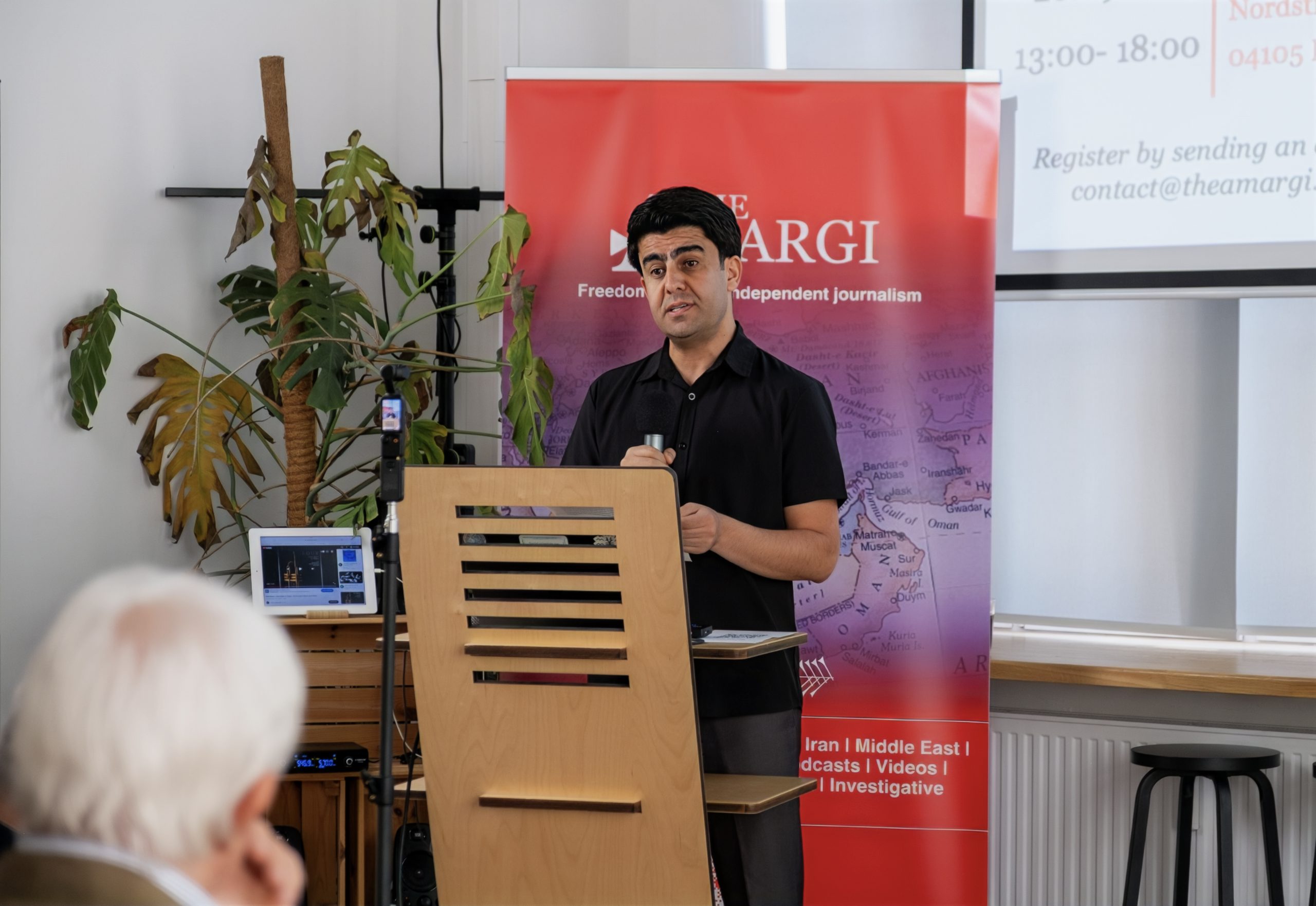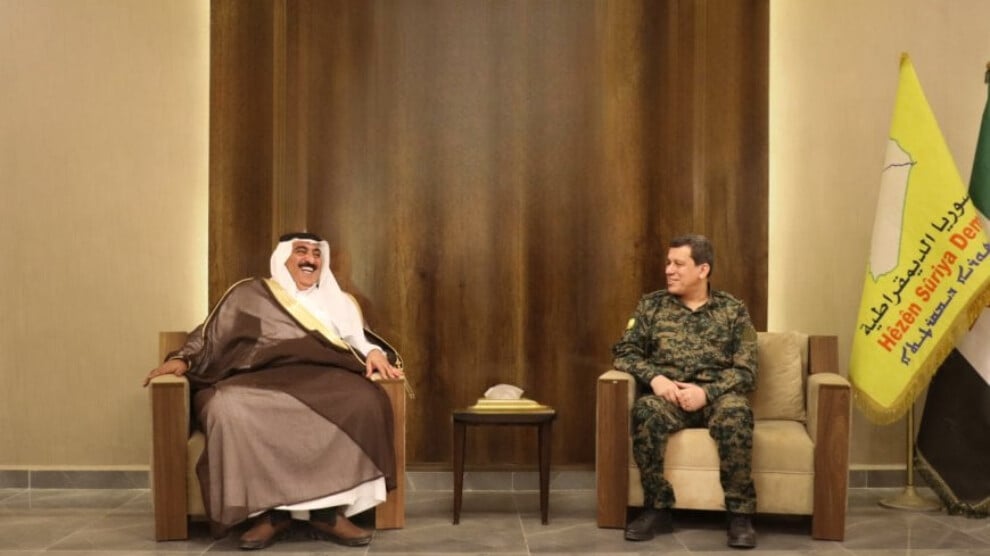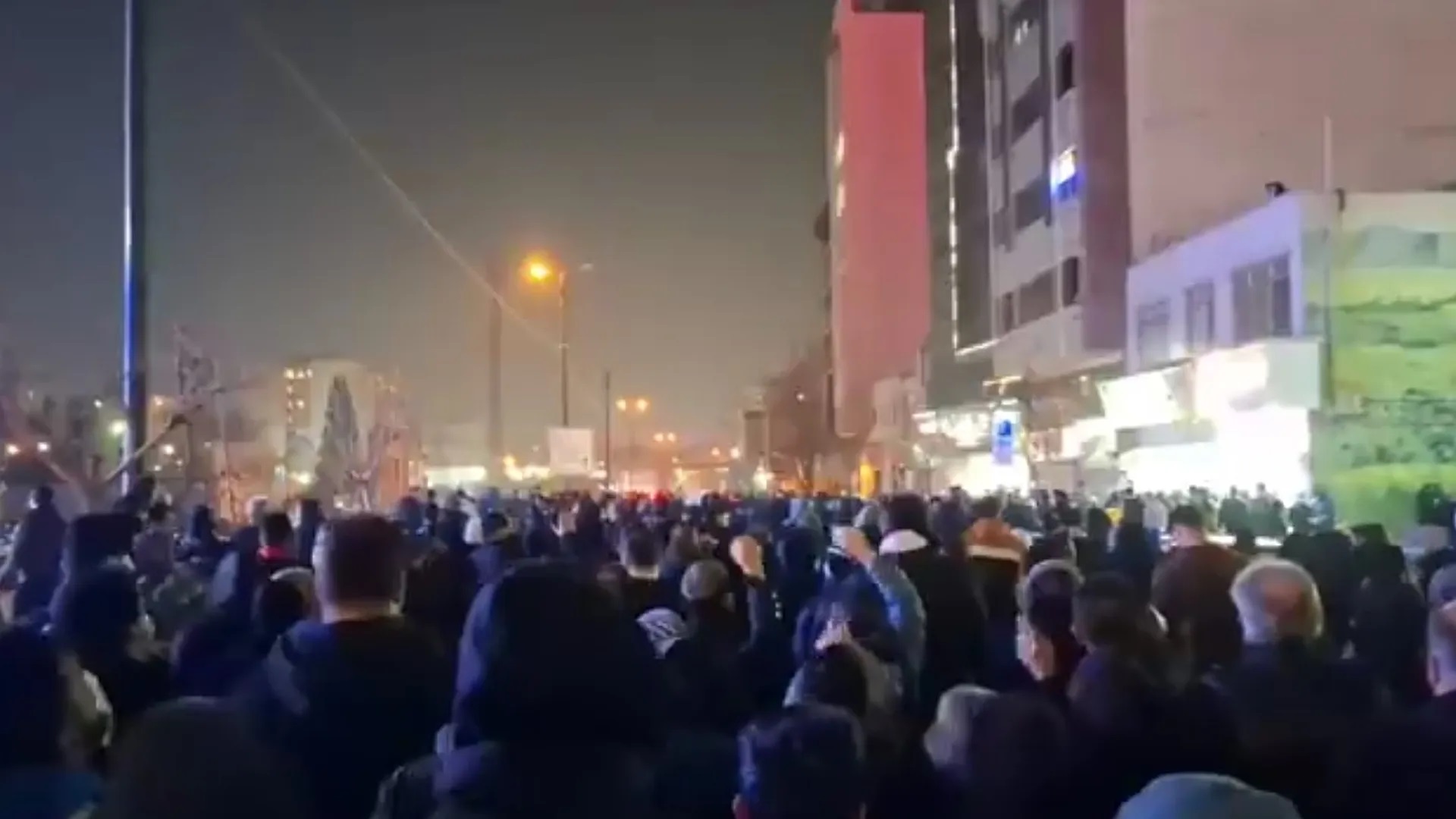The Amargi’s Vision

This is the inaugural speech by Kamal Chomani, Editor-in-Chief of The Amargi, during its launch event on 20th September 2025
Dear All,
It is with great honour and excitement that I welcome you to the launch of our independent media platform, The Amargi.
Let me begin by extending my deepest thanks to each one of you for being here today, coming from across the Middle East, Europe, the US and beyond. Your presence gives meaning to this moment, and your support reminds us that no idea can grow without a community to nurture it.
Our region, as well as the world in general, has been going through dramatic transformations with the arrival of the new century. Those transformations, however, have not always advanced political and social consciousness. Today, we are living through critical times; societies are polarised and democracies are declining. Truth is always among the many victims.
In the early 2000s, just after the US-led invasion of Iraq, dozens of newspapers and media outlets mushroomed in the Kurdistan Region of Iraq, inspired by a promise of democratic tranformation. I personally started my journalism during those days with the hope of a better future. For some time, it felt as if history had opened a window, and we were rushing to breathe the fresh air of freedom.
The early 2010s were a time of hope across the Middle East and North Africa. People were dreaming big. Protest movements were rising. Students were organising and questioning the system. Journalists were exposing corruption and challenging power. Civil society was alive with energy. Women were collectively resisting the male-dominated system and organizing to dismantle the oppressive pillars of patriarchy. This manifested in many different grassroots movements and initiatives with various perspectives for genuine system change and transformation.
And yet, what began with hope too often ended in despair. Those in power had their own plans. They responded to popular demands with repression: assassinating journalists, jailing dissidents, and driving many into exile. In 2011, when Kurdish youth took to the streets, inspired by what was called the Arab Spring, they were met not with dialogue but with bullets by their own representatives.
As democratic forces of the region tried to liberate themselves from the chains of neocolonialism and authoritarianism, various reactionary forces reorganised, through nationalism, religious fundamentalism, sectarianism, and patriarchy. When one ideology lost its appeal, they resorted to another. Currently,across the region, the voices of backwardness are on the rise, and the voices of freedom are being exiled, marginalised, imprisoned, and intimidated. Today, the Middle East is more often associated with war and violence than with its historical mosaic of cultures, faiths, and languages.
One of the main methods employed by authoritarian regimes to sustain themselves is the control of information. In such unfree atmospheres, the media is not a space of truth, but an instrument of power, propaganda, and intimidation.
According to Reporters Without Borders, journalism in the Middle East and North Africa remains among the least free in the world. Nearly half the countries in the region fall into their “very serious” category for press freedom—meaning journalists are not free at all. Palestine, under bombardment, is the deadliest country for journalists. In Iraq, Iran, Syria, Yemen, Turkey, Saudi Arabia, the UAE, and other regionsspeaking truth to power comes at the cost of exile, imprisonment, or life itself.
At this critical juncture of history, Why The Amargi?
We, a group of journalists, academics, and activists, recognize that we stand at a critical juncture in history, where shifting geopolitics and resurgent authoritarianism demand new voices, new platforms, and new commitments. Our communities—both in our regions and in the diaspora—are in need of a media that does not simply echo the narratives of the region’s powerful elites or narratives promotingWestern interests, but dares to imagine alternatives. A media that represents the peoples’ interests.
This is why we found our guiding reference in the meaning of an ancient word from our region:Amargi—freedom. In different languages, the meaning and promise of this word has guided diverse struggles for millennia.
We believe that journalism, at its best, is an act of liberation.
We know that without independent media, democracy cannot survive and justice will always remain a distant dream.
Hence, The Amargi.
At The Amargi, we want to be a beacon of truth in a region where democracy is fragile, or non-existent. Our aim is to stand with the oppressed, whether they are in Kurdistan, Palestine, Iran, Iraq, Tunis, or Turkey. We will always speak against authoritarianism, whether it wears the clothes of nationalism, religion, or liberal democracy.
And let me be clear: Yes, majority of us on the team have a Kurdish background, but we will not excuse Kurdish rulers when they betray the values we stand for. Kurdishness can never be an alibi for authoritarianism, for corruption, or for the silencing of dissent. True loyalty to our people means loyalty to justice and truth.
But why are we in Germany?
Why, some may ask, do we launch The Amargi here in Germany, far from Erbil, Tehran, Istanbul, Beirut, Cairo, or Diyarbakir? The answer lies in the difficult conditions in Kurdistan and the Middle East. Due to decades of war and conflict, as well as authoritarian repression and socio-economic problems, many Kurdish journalists have found themselves in exile.Many of us had to leave our homes to continue our work safely and with integrity. . While it is painful to be far from home, exile can also provide space—to reflect, to create, to speak without immediate fear of reprisal. In Germanywe found each other again. Here, we also found conditions to build something that can serve not only the Kurdish people, but all those who struggle for justice in the Middle East. Here, we interact with global communities of activists, academics, artists, and journalists who know that the fate and struggle of one people are never isolated—they are connected to broader struggles for freedom everywhere.
However, let us not be naïve and take this democracy for granted, either. Freedom of expression is also declining in Germany and in Western Europe in general, alongside the rise of the far right. European states suppress the truth about events in conflict zones when it does not serve their interests—as we can all see in the case of Gaza. Many journalists and media outlets in the west function as mouthpieces for governments or corporate interests. In light of this, The Amargi does not take this relative freedom space for granted. Instead, in a time when the free press is under threat everywhere, we also fight to not merely defend but also expand the space that liberal democracies for now provide.
Our principles will therefore not be determined by where we are. They are universal. Our core values are simple yet ambitious:
Independence: No government or party or private entity will dictate our content. We are grassroots-funded. Neither state nor corporate interests can dictate our editorial policies.
Integrity: facts, not interests, must guide analysis, even when inconvenient.
Justice and equality: we are committed to amplifying voices too often silenced—women, youth, minorities, and marginalised groups and oppressed communities.
Courage: we will not shy away from difficult truths, even when they challenge our own societies.
Hope: because without hope, journalism risks becoming only critique without vision.
This is why we believe in independent journalism as a vital need for the path of freedom.
Dear friends,
We launch The Amargi as a promise. A promise to build, together, a platform that reflects the dignity of our peoples and the urgency of our times. A promise to honour the sacrifices of those who came before us, while creating space for new generations to dream and to act.
Thank you for standing with us at the beginning of this journey. Thank you for believing in independent journalism. And thank you for believing in freedom—Amargi.
Kamal Chomani
Editor-in-Chief of The Amargi and PhD candidate at Leipzig University

![[Amargi Exclusive] In the Zagros Mountains, PJAK’s Co-chair Says Iran has “Already Collapsed” and Warns Against “Another Dictatorship”](https://cms.theamargi.com/wp-content/uploads/2026/01/ressize-Screenshot_2026-01-12_at_15.05.23-1.png)

